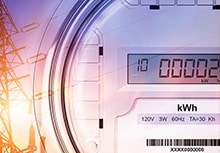Expanding possibility in the world of data.
The modern world relies on seamless data connection—and the future is all about connection. TE is bridging the IoT gap between cloud computing and data connectivity by laying the foundation for a more connected world. TE’s deep IoT expertise provides end-to-end solutions for worldwide information processing and projection—expanding endless possibility into virtually every industry.
Technologist - System Architecture, Data & Devices
From transportation to nationwide health centers—see where the future of data connectivity is headed.
Senior Fellow R&D/Product DVL Engineer
Big data needs deep computing power. TE is revolutionizing the way we process informationin every industry.
What is IoT Connectivity?
The Internet of Things (IoT) is an exchange of real-time data between smart devices and the cloud, as well as between the devices themselves. It is a system of interrelated computing devices, mechanical and digital IoT machines, objects, and humans. IoT is capable of transferring data over a network without the need of human-to-human or human-to-computer interaction.
The evolution of IoT technology was made possible by cost-prohibitive products becoming affordable due to technology advantages. Products that helped make IoT a reality include computer chips, high bandwidth communications, sensors, and processors. Examples of IoT devices include sensors for IoT, household appliances, IoT medical devices, smart cars, IoT machines, and wind turbines.
Connecting IoT Devices to the Cloud
An IoT connection works by the combination of a smart device, IoT application, and user interface. The smart device has computing capabilities and its data is collected from its environment, user engagement, or usage patterns. That data is communicated over the internet back and forth to the IoT application. The IoT application comprises services and software that integrate the data collected from the device and other IoT devices. Machine learning or AI analyzes the data to make informed decisions that are communicated back to the IoT device, which respond intelligently to inputs. Finally, the IoT user interface manages the device. User interfaces examples are phone applications or websites that can register and control smart devices.
Benefits of IoT is that industries are increasingly using IoT in various capacities to help their systems and machines work more efficiently. IoT trends include industrial IoT, smart cars, smart homes, wearables, smart cities, and smart buildings. Connected car examples include infotainment systems and smart dashcams. Data is collected from the accelerator, brakes, speedometer, and other vehicle parts, which can predict car malfunctions or maintenance needs.
Smart IoT devices found in homes are primarily used for house safety and efficiency. Home IoT examples include IoT security systems, security cameras, and water leak detectors. IoT usage in smart cities has resulted in more efficient urban planning and better infrastructure maintenance. Smart city IoT uses include air quality and radiation level measurements, smart light systems, and detecting maintenance needs for critical infrastructure.
See How TE is Developing Next-gen IoT Solutions for a More Connected Future











 e
e




